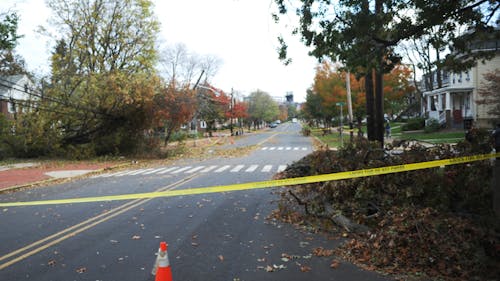Federal grant provides Rutgers with way to protect people, property in times of crisis

Rutgers’ newly launched Institute for Emergency Preparedness and Homeland Security is well on its way to reaching its goal of protecting people and property in times of crisis, thanks to a large grant from the federal government’s intelligence agencies.
The Institute, which was formally announced in June 2014 at the “IEPHS Inaugural Conference,” was chosen by the United States' Office of the Director of National Intelligence. Rutgers was one of eight selected from a pool of 50 competing universities to receive $1.95 million in funding, alongside a designation as a Center of Academic Excellence, according to MyCentralJersey.com
The grant will be used to design and deliver an academic program at Rutgers that teaches intelligence-related curricula. University President Robert L. Barchi shared his excitement for the recognition and award on behalf of IEHPS.
“We are thrilled to have been designated an Intelligence Community Center of Academic Excellence,” Barchi told MyCentralJersey.com.
Barchi said by drawing upon expertise ranging from mathematics and engineering to criminal justice, medicine and law, IEHPS is accomplishing the vision of the University’s Strategic Plan through collaborative and interdisciplinary work.
The purpose of the grant, according to MyCentralJersey.com, is to enhance the intelligence community workforce with applicants who have the skills and training necessary for the U.S.’s intelligence and national security efforts.
In an age where natural disasters are a growing threat due to climate change, establishing academic programs for emergency preparedness is proving increasingly important in preparing future generations for disaster recovery beyond federal aid.
Hurricane Sandy, for example, created permanent loss for myriad individuals and businesses in New Jersey and surrounding states in its wake, according to The Federal Reserve Bank of New York. Federal support proved insufficient in restoring affected areas, with relief costs exceeding the Federal Emergency Management Agency’s Disaster Relief Fund and necessitating a $51 billion relief bill, as reported by the Congressional Research Service.
Although Rutgers was able to safely evacuate students and provide large shelters without incident during Hurricane Sandy, the storm revealed critical flaws in Rutgers’ own emergency response system, according the University’s 2013 “Emergency Preparedness Task Force Report: Hurricane Sandy 2012.”
According to a 2012 study published in Nature Climate Change, extreme weather is expected to worsen over the years, with “change of storm climatology” likely to increase surge flood risk for New York City and cause present surge flooding to occur every three to 20 years.
IEPHS also aims to be a leader in response to manmade emergencies and counter-terrorism efforts, according to its website.
John Farmer Jr., the grant’s lead investigator, and Clifton Lacy, director of IEPHS, lead the team of experts at the Institute in its developing journey to install an intelligence program at Rutgers.
“As recent events have shown, the need for reliable, legally obtained intelligence has never been more acute,” Farmer told mycentraljersey.com. “The designation and grant will enable Rutgers to build on the expertise that already exists at the University to shape intelligence policy and to educate and train the next generation of intelligence professionals.”
Lacy, a physician, said at the Institute’s launch event that the establishment of IEHPS is part of Rutgers’ plan to be a national and global leader in the areas of emergency preparedness, disaster response and homeland security.
Echoing his past statements, Lacy told mycentraljersey.com that the Institute brings together experts to deliver collaboration in research, education, community outreach and preparedness initiatives.
“This new grant funds vitally important education and training initiative," Lacy said. "Although some of our projects involve the theoretical, the main thrust of our efforts is the development of practical advances useful in the real world."



